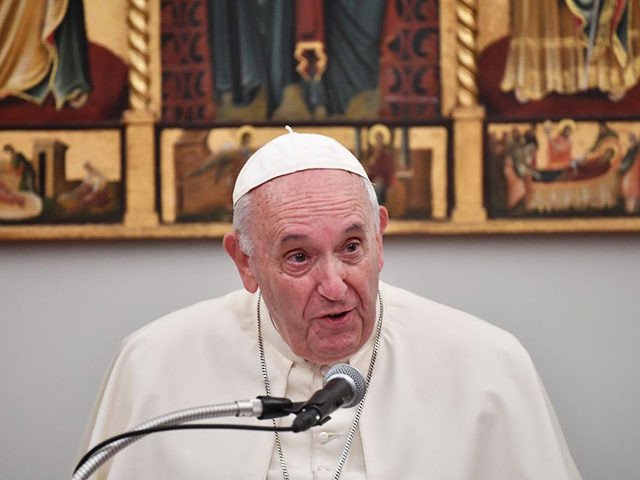ROME — Pope Francis has questioned the Church’s adoption of “drastic measures” in dealing with the coronavirus after the closing of the nation’s churches and the suspension of the sacraments.
“In these days we are united to the sick and the families suffering from this pandemic,” the pontiff prayed at his morning Mass Friday. “I would also like to pray today for the shepherds who must accompany the people of God in this crisis.”
“May the Lord give them strength and the ability to choose the best means to help,” Francis continued. “Drastic measures are not always good. This is why we pray that the Holy Spirit will give shepherds the capacity for pastoral discernment so that they can enact measures that do not leave the holy faithful people of God alone.”
“May the people of God feel accompanied by their shepherds and comforted by the Word, sacraments, and prayer,” he concluded.
The Catholic Church in Italy first canceled weekday Masses, then all Masses. Next, the Diocese of Rome decided to close all its churches, followed by a decree by the bishops’ conference counseling the closure of all the churches in the country, leaving the faithful without the sacraments or any spiritual attention during the crisis.
The decree by the Diocese of Rome was particularly brutal, noting that the faithful are forbidden from entering any place of worship until Friday, April 3.
Cardinal De Donatis, who signed the decree, insisted that this decision did not stem from a specific government directive, but rather was made in the interests of the “common good.”
The pope’s apparent questioning of the wisdom of these measures has led to much speculation on social media as to who is actually in charge in Rome.
The Lazio region, in which Rome is located, has registered a total of 200 cases of the coronavirus out of a population of 5.9 million, meaning that only 0.003 percent of the population has been affected.

COMMENTS
Please let us know if you're having issues with commenting.